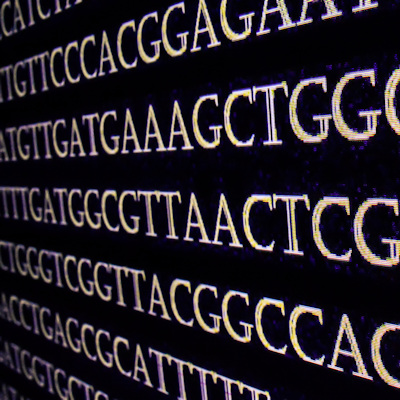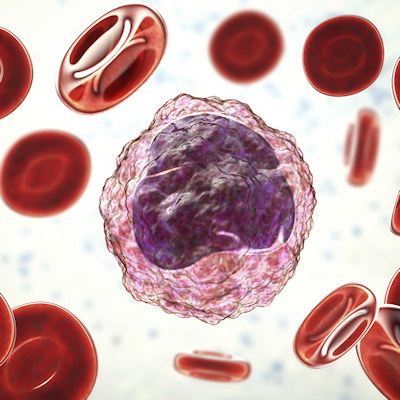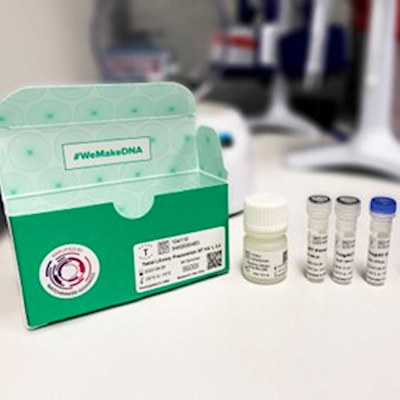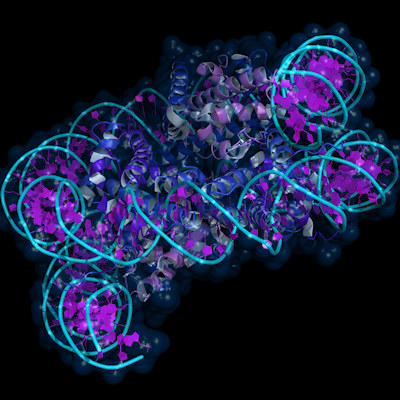May 4, 2023 -- Researchers are combining genome-wide association studies, CRISPR, and single-cell sequencing to discover causal variants and genetic mechanisms for blood cell traits. Their approach, dubbed STING-seq, published Thursday in Science, connects genetic variants to human traits and health, potentially helping to identify drug targets for genetic diseases.
A major genetics challenge is understanding which parts of the human genome drive specific traits or contribute to disease risk. Genome-wide association studies (GWAS) compare the genomes of large populations to find variants that occur more often in subpopulations with a specific disease or trait. GWAS can reveal which genomic regions are implicated in diseases or traits. However, these associations are primarily found in the poorly understood 98% of the genome that does not code for proteins, rather than the well-studied 2% of the genome that codes for proteins. Further complicating matters, many variants are found near one another within the genome, making it difficult to distinguish variants that play a causal role from variants simply located nearby.
GWAS recently facilitated a treatment breakthrough for the painful genetic disorder sickle cell anemia. Using the gene editing tool CRISPR, scientists found that edits made at a specific GWAS-identified location in the noncoding genome, near a gene called BCL11A, resulted in high levels of fetal hemoglobin. After the modified bone marrow cells are infused back into sickle cell anemia patients, they begin producing fetal hemoglobin, displacing the mutated adult hemoglobin, and effectively curing them of the disease.
The researchers' new Systematic Targeting and Inhibition of Noncoding GWAS loci with single-cell sequencing (STING-seq) workflow uses CRISPR to target each of the regions of the genomes implicated by GWAS and conduct single-cell sequencing to evaluate gene expression.
The researchers illustrated the use of STING-seq to discover target genes of noncoding variants for blood traits easily measured in routine blood tests -- such as the percentages of platelets, white blood cells, and red blood cells. They used GWAS to study blood traits in nearly 750,000 people from diverse backgrounds. The researchers identified 543 candidate genome regions that may play a role in blood cell traits, then used CRISPR inhibition to silence precise GWAS identified genome regions.
They then looked at the expression of nearby genes in individual cells to see if they were turned on or off. If they saw a difference in gene expression between cells where variants were and were not silenced, they could link specific noncoding regions to target genes and pinpoint which noncoding regions were central to specific traits. In a blood trait called monocyte count, applying CRISPR caused one gene, CD52, to stand out as significantly altered. Since CD52 was not the closest gene to the variant of interest, it may have previously been overlooked.
The researchers created a complementary approach called beeSTING-seq (base editing STING-seq) that uses CRISPR to insert genetic variants instead of simply inhibiting genome regions. They envision using STING-seq and beeSTING-seq to identify causal variants for a range of diseases that, like sickle cell anemia, can be treated with gene editing, or with drugs targeting specific genes.
"Now that we can connect noncoding variants to target genes, this gives us evidence that either small molecules or antibody therapies could be developed to change the expression of specific genes," Tuuli Lappalainen, co-senior author and New York Genome Center faculty member, said in a statement.
Copyright © 2023 scienceboard.net













